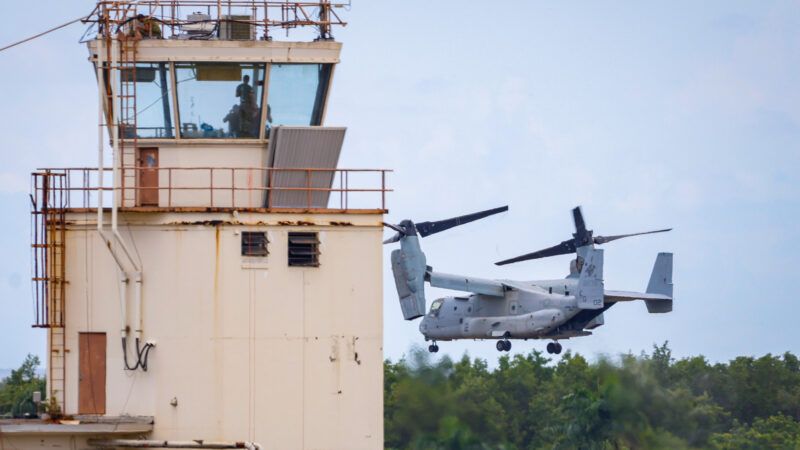Trump Dares Congress To Take Its War Powers Seriously in Venezuela
The president bet that no one would stop him from land attacks in Venezuela. And Congress hasn’t given him any reason to think otherwise.

The framers of the Constitution had a clear idea of how war should work. Although the President is "commander in chief" of the military, the Constitution states that Congress has the power "to declare war, grant letters of marque and reprisal, and make rules concerning captures on land and water."
During the Cold War, that rule gave way to a new, unwritten principle: Try and stop me. Presidents jumped into foreign conflicts without any public debate, and found that Congress was unwilling to assert itself. Even when the Obama administration asked lawmakers to pass a formal authorization for a war against the Islamic State, a war everyone supported and no one wanted to stop, Congress chose to do nothing.
No wonder President Donald Trump thinks of Congress as a rubber stamp in his undeclared war against alleged drug traffickers in the Caribbean Sea, which has reportedly coincided with preparations for a regime change campaign in nearby Venezuela.
"The land is going to be next. We may go to the Senate, we may go to the Congress, and tell them about it, but I can't imagine they'd have any problem with it," Trump told reporters on Thursday. Addressing Defense Secretary Pete Hegseth, he added, "You go to Congress. You tell them about it. What are they going to do, say, gee we don't want to stop drugs pouring in?"
It's not a bad bet that Congress will let Trump take this military campaign as far as he wants. Earlier this month, Senate Republicans blocked an effort by Democrats and Sen. Rand Paul (R–Ky.) to invoke the War Powers Act over the attacks on Caribbean vessels. Paul and his Democratic counterparts are trying again to force a vote over any potential military action on Venezuelan soil.
After all, Congress also voted down a war powers resolution after Trump struck Iran without permission, something that has threatened to do again. His predecessors, Joe Biden and Barack Obama, also waged undeclared wars of their own with little input from Congress. Lawmakers neither want to vote for war nor vote against it; they have abdicated their power.
The Trump administration has argued internally that it doesn't need Congress' permission for its Caribbean attacks. Early in his administration, Trump declared several Latin American drug cartels to be terrorist organizations. In a memo leaked to the Associated Press, the administration argued that the United States was already in a "non-international armed conflict" against those cartels, meaning that any attacks on alleged drug dealers would be self-defense.
As with the global war on terror, which was also a campaign against underground groups, it's hard to know how many of the targets of this beefed-up war on drugs are actually who the U.S. government says they are. The family of one victim, Chad Joseph, insists that he was an innocent fisherman. The government of Colombia said the same thing about Alejandro Carranza, another victim.
The Trump administration, which insists that everyone killed was a "narcoterrorist," is not keen on showing the evidence in an American court. After two people survived a U.S. attack on an alleged drug submarine, Trump released them to their home countries, Colombia and Ecuador, "for detention and prosecution" there. The Ecuadorian government released its suspect for lack of evidence.
More ominously, Trump has signaled very loudly that he does not intend to stop with criminal suspects. Over the summer, his administration designated Cartel de los Soles as a terrorist organization, then accused Venezuelan President Nicolas Maduro of directly running it, and put a $50 million bounty on Maduro's head.
Trump has authorized the CIA to carry out covert action against Maduro's government, which he publicly acknowledged to reporters. The U.S. military has also carried out a massive buildup in the Caribbean, far beyond the forces needed to fight smugglers, including 10,000 troops, heavy bombers, and amphibious landing ships.
Elliott Abrams, who oversaw Venezuela during the first Trump administration, told CNN that the military buildup was meant for a "pressure campaign" short of an "invasion of Venezuela." But given how fast the Caribbean war has escalated, and how little congressional or public input there has been, there's very little stopping Trump if he did want to launch a full-on invasion.


Show Comments (71)